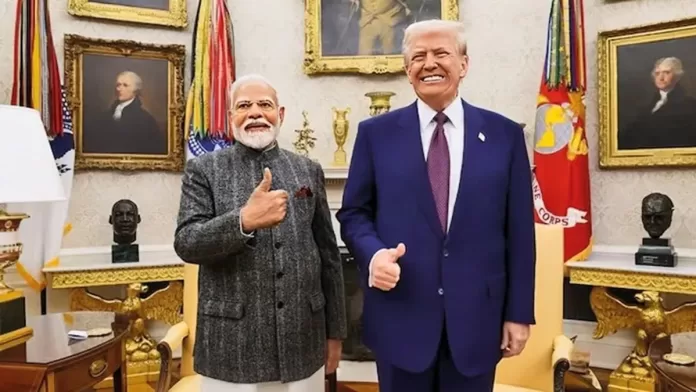On April 2, 2025, the world was focused on the United States as President Donald Trump announced a significant tariff implementation during a late-night press conference. This move aligns with Trump’s ongoing campaign promises to make America wealthier by addressing what he perceives as unfair advantages taken by other nations in the U.S. market.
Trump revealed a reciprocal tariff of 26% on India, 34% on China, 20% on the European Union, 46% on Vietnam, and 32% on Taiwan. In addition, he announced a baseline tariff of 10% on all countries, which would apply to all goods entering the U.S. from April 5, followed by the reciprocal tariffs on April 9 at midnight.
China responded to the announcement, labeling the tariffs as aggressive and threatening to take retaliatory measures. Canada indicated it would defend its workers and respond to the Trump administration, while Brazil was prepared to take the tariff issue to the world Trade Organization (WTO). Australia criticized the traffic as unreasonable.
The Indian Ministry of Commerce stated that it was assessing the impact of the 26% tariff, with officials suggesting that while certain sectors might be affected, India’s economy could withstand the pressure. Reports indicated that there are provisions within the Trump administration that could lead to a reduction in tariffs if India addresses U.S. concerns, a consideration India is contemplating.
The White House asserted that India imposes cumbersome certification requirements in sectors like chemicals, telecommunications, and medical devices, making it difficult for U.S. companies to do business there. Removal of these barriers could potentially boost annual U.S. exports by at least $5.3 billion.
Indian- American lawmakers criticized Trump’s reciprocal tariff decision, deeming it irresponsible and self-destructive. They appealed to leaders from both the U.S. and India to engage in dialogue to navigate the challenge. Democratic Congressman Raja Krishanmoorthi commented that the tariffs would exert economic pressure on individuals already facing difficulties and could isolate the U.S. on a global scale, adversely affecting ally nations and benefiting adversaries.
Shashi Rai














